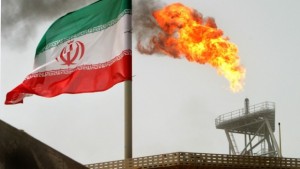 IRAN, like Mexico, has a new and more reform-minded president who wants to loosen the national oil company’s grip on his country’s massive reserves, and bring in private investment to boost output. One big difference is that Iran’s ability to do so is severely curtailed by international sanctions on the country over its nuclear programme. Nevertheless, the president, Hassan Rohani, has brought back a former oil minister, Bijan Zanganeh, who in his previous stint, in 1997-2005, ushered in what some Iranians remember as a golden age of oil investment.
IRAN, like Mexico, has a new and more reform-minded president who wants to loosen the national oil company’s grip on his country’s massive reserves, and bring in private investment to boost output. One big difference is that Iran’s ability to do so is severely curtailed by international sanctions on the country over its nuclear programme. Nevertheless, the president, Hassan Rohani, has brought back a former oil minister, Bijan Zanganeh, who in his previous stint, in 1997-2005, ushered in what some Iranians remember as a golden age of oil investment.
Back then, Mr Zanganeh signed deals with many foreign oil majors, bringing billions of petrodollars to Iran. He decentralised the powerful National Iranian Oil Company (NIOC) and filled his ministry with technocrats. Some of these were blemished with financial scandal. On taking office, Mr Rohani’s populist predecessor in the presidency, Mahmoud Ahmadinejad, denounced them as the “oil mafia” and chucked them out. Now Mr Zanganeh has hired some of them back.
The minister is aiming to raise Iran’s crude-oil production to its 2005 level of around 4.2m barrels a day, a 60% boost on current output. He is promising to speed up work on the country’s South Pars offshore gas development, which has suffered big technical and financial problems as sanctions have scared away foreign investors. But his proposal to foster a competitive private sector to help develop Iran’s many stalled energy projects will pit him against the powerful Revolutionary Guard. This militia, answerable only to the supreme leader, Ayatollah Ali Khamenei, owns various engineering firms that have become involved in oil projects.
There are also plans to reform the way Iran contracts with private oil companies to develop fields. In recent years the government has typically offered “buy-back” agreements, in which the oil company gets a small, fixed return on successful projects, rather than “production-sharing” deals, in which the contractor gets a share of the output and thus stands to gain much greater rewards. A Tehran-based oil analyst says the NIOC is likely to offer production-sharing deals on some of the riskier projects on Iran’s border with Iraq. However, it will face objections from the many parliamentarians who believe that such contracts are unconstitutional, because they give foreigners a share of Iran’s natural resources.
Iran’s inflation rate of over 40% makes it hard for the government to finance projects by issuing its once-popular oil bonds. So it needs foreign investment all the more. Mr Zanganeh also wants the foreign oil firms to teach modern extraction techniques to Iranian engineers.
However, notes Michelle Moghtader of Energy Intelligence Group, a research company, the international sanctions will make it hard for the new minister to attract the level of foreign interest he won in his first term in office. “They will be forced to court Chinese and Indian companies, who don’t have the same expertise as the oil majors,” she says. Mr Zanganeh hopes that offering juicy deals to Western oil firms will make them lobby their home governments to ease sanctions. But without some sort of diplomatic breakthrough in the dispute over Iran’s nuclear programme, there is little chance of that happening.
By The Economist
The Iran Project is not responsible for the content of quoted articles.

 QR code
QR code